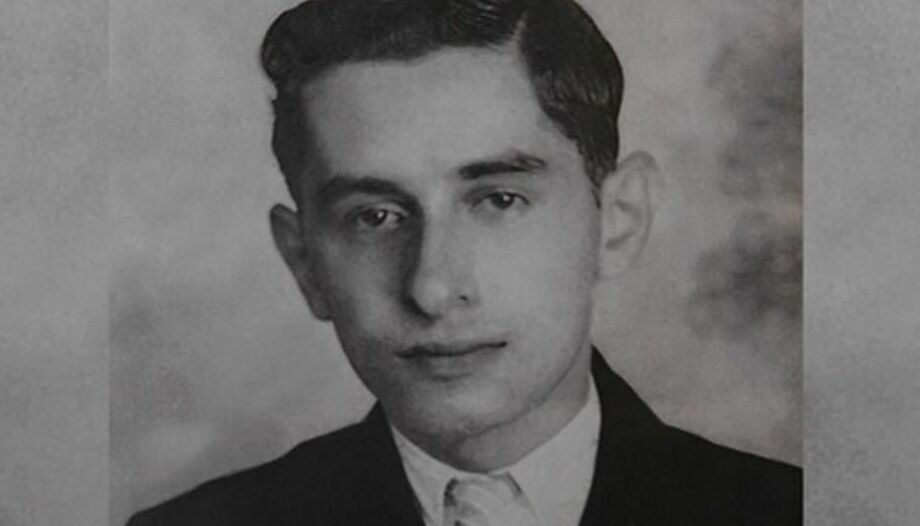Carlos Manuel, the first Puerto Rican blessed, was born on November 22, 1918 in Caguas, P.R. He is the second of five children of the marriage of Manuel Baudilio Rodríguez Rodríguez Rodríguez and Hermina Santiago Esterás.
A few months after his birth, the family suffers the fire of his father's house and business. Because of this incident the family will move to the house of his maternal grandparents.
Her maternal grandmother, Alejandrina, will be of great influence in her life of faith and piety, inheriting the altar of her home where she will spend her times of prayer.
His daily life, since he was a child because he learned it that way, was centered on liturgical life and the Eucharist, which became the center of his life. Going to his parish, in the town of Caguas, he began to get involved in the pastoral life.
As an altar server, he came into more direct contact with the liturgy and fell in love with it, especially the Easter Vigil. He will hold in high esteem the celebration of Easter and Sunday, discovering the centrality of the Risen Christ in Christian life. We could say that he develops and lives a liturgical-paschal spirituality.
Liturgical spirituality
Liturgical spirituality is, or should become, an Easter spirituality because the liturgy celebrates the Paschal Mystery. Easter for Blessed Charles became a vital experience for the Christian, but for this one had to "enter 'into the thing'". It is a vital experience for the Christian depending on the concept of Christian or Catholic life.
Carlos Manuel defined Catholic life with the following words: "Catholic life is something unique, it is a tremendous participation in the new order inaugurated by the death and resurrection of Christ; it is a life in the deepest, truest and fullest sense of the word; Christ living in us". The way in which this life is nourished and deepened is through the liturgy.
Aware that "the Liturgy is for the people and not for a select group of scholars" he dedicated himself to promote the liturgical experience in Puerto Rico. To promote the right living of the liturgy he became a self-taught. Because of his health problems he was unable to complete his university studies, but this did not prevent him from learning about the Church, especially about this topic so exciting for him. He read and studied the writings on the subject emanating in his time, promoted the application of the liturgical reforms of Pius XII, and subscribed to magazines and studies of the time. What he learned he made known through the apostolate.
The Christian Culture Circle
Carlos Manuel carried out his apostolate through friendship and accompaniment, especially with those who visited the Catholic University Center, and correspondence. He subscribed to different people to receive articles on liturgy and religious formation in general. In addition, while at the University Center he founded a bulletin called Liturgia, the Circle of Christian Culture and the "Days of Christian Life".
The Círculo de Cultura Cristiana is described by Carlos Manuel himself in a letter in which he discusses the subject: "The Círculo de Cultura Cristiana is a group of professional students that functions within the Centro Universitario Católico Puertorriqueño. The general purposes of the Circle are:
To make its members become Catholic and apostolic intellectuals.
To work for the restoration and renewal of a truly Christian culture.
To work for the realization of the ideals of the Liturgical Movement".
The "Days of Christian Life" were occasions for gathering, sharing and formation. The time was divided up for prayer, fun, formation and conversation. Each meeting revolved around a theme, whether it was about the liturgical season being lived or current issues such as secularism. The idea was to help people understand how to live each mystery of the Church.
The Easter Vigil
Finally, he propagated the importance of celebrating the Easter Vigil while respecting its time and structure. In a letter entitled "Let us not spoil the Easter Vigil", Carlos Manuel affirms the centrality of this night, the importance of celebrating it according to the norms so as not to create an erroneous mentality in the faithful, among others.
His defense of the Easter Vigil stems from his thought that the liturgy was for the Holy People of God, that everyone could come to understand it and that, being the center of Christian life, it should be promoted as a means of apostolate.
Charles Emmanuel died on July 13, 1963, living his personal Easter. He searches for the living God while experiencing the dark night of the soul and recovers his serenity when he rediscovers the word that has a great meaning for him: God. He encounters the living God, the Risen One, after suffering for many years from a gastrointestinal disease: ulcerative colitis, which he did not show. He lived his life trying to make others fall in love with the joy of the Risen One and the centrality of the liturgy for Christian life.








